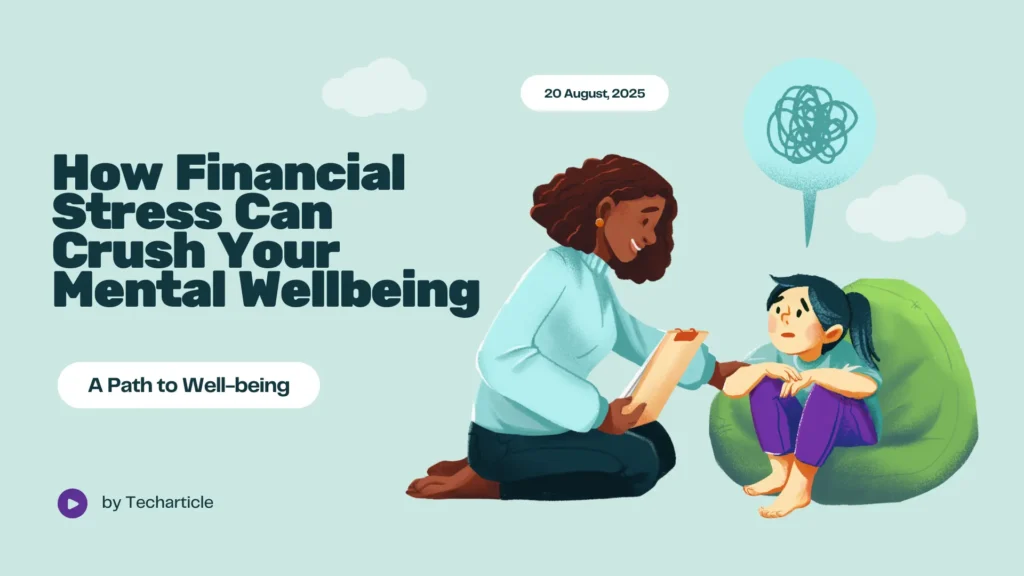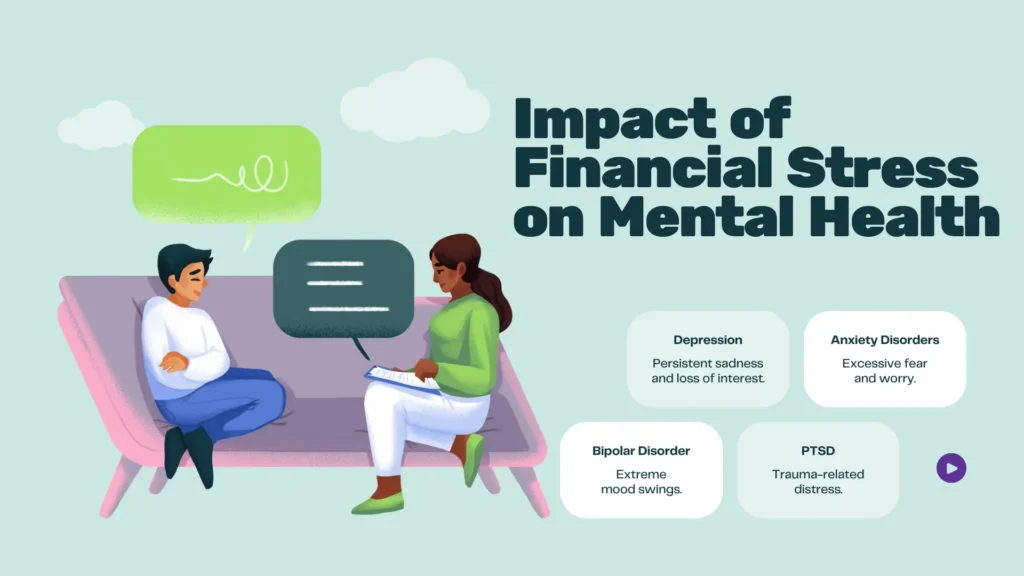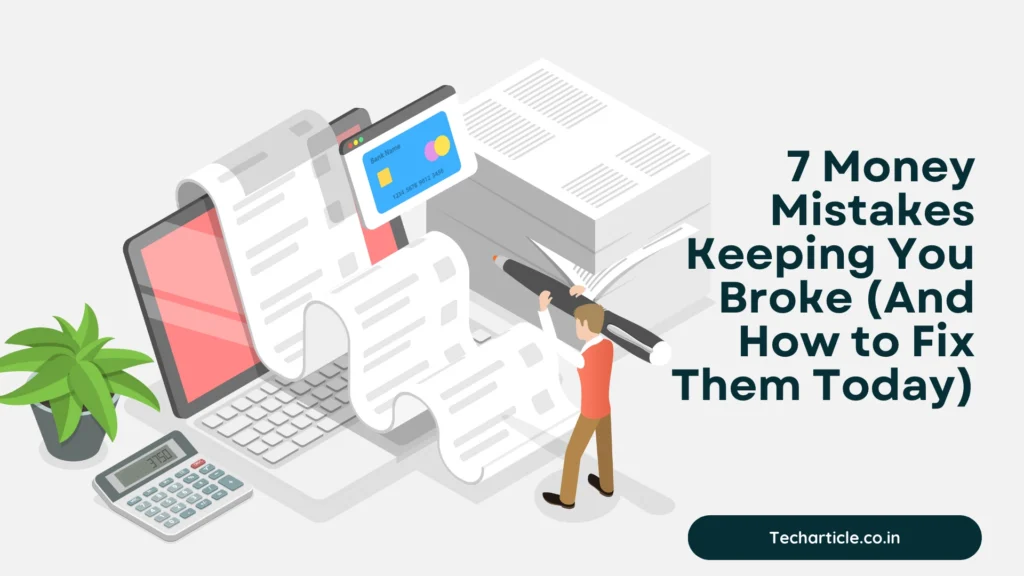
Money worries don’t just empty your wallet—they can drain your peace of mind, too. Like a heavy backpack you can’t take off, financial stress weighs you down, making even small decisions feel overwhelming.
Whether it’s unpaid bills, rising debt, or simply not having enough, money troubles often trigger anxiety, sleepless nights, and even depression. And the worst part? The more you stress, the harder it gets to think clearly.
Financial stress doesn’t play fair. It sneaks into your relationships, work focus, and self-esteem, leaving you exhausted before you even tackle the problem. Many people ignore this mental toll, thinking, “If I just earn more, I’ll be fine.” But the real fix starts with understanding how money fears mess with your mind—and how to actually break free. Let’s dive deeper.
Recognizing Stress
Financial stress doesn’t always shout—sometimes, it whispers. You might notice small changes first, like losing sleep over bills or feeling irritable after checking your bank account. These signs creep in slowly, making it easy to ignore them. But your body and mind keep score.
Frequently, stress shows up physically. Tight shoulders, headaches, or a churning stomach can all be red flags. Emotionally, you may feel anxious, overwhelmed, or even numb about money. Additionally, some people cope by avoiding finances altogether, which only worsens the problem.
The key is spotting these signals early. Are you snapping at loved ones more? Procrastinating on money tasks? These could be stress responses. Furthermore, if small expenses suddenly feel crushing, your brain might be stuck in survival mode. Recognising these signs helps you take action before stress takes over.
Remember, stress isn’t just “in your head”—it’s in your habits, body, and mood. So, pause and ask yourself: Is money weighing heavier than it should? Your answer matters.
What is Financial Stress?
Financial stress is that constant worry about money that sticks with you. It’s not just about being short on cash—it’s the fear when bills pile up, the stress of surprise costs, or feeling bad about buying anything extra. Even when you’re getting by, money thoughts can wear you out.
And it doesn’t stop there. This kind of stress can make you argue with loved ones, lose sleep, and even feel sick. Whether you’re struggling to pay rent or just nervous about tomorrow, money stress feels like a heavy cloud. Spotting it early helps you start feeling better.
Impact of Financial Stress on Mental Health

Money worries don’t just hurt your wallet—they hurt your mind too. When bills pile up or income drops, stress hormones flood your body. This can lead to constant anxiety, sleepless nights, and even depression. Many people feel trapped, which makes problems seem even bigger.
Over time, financial stress changes how you think. You might snap at loved ones, lose focus at work, or feel hopeless. Studies show people with money troubles are 3x more likely to face mental health issues.
The good news? This cycle can be broken. With the right strategies—whether it’s budgeting help, counselling, or small steps toward financial control—you can ease the burden and start rebuilding stability. No matter how overwhelming it feels now, there is a way forward.
Confront the source of your financial stress head-on
Ignoring money problems will only make them grow bigger. Start by opening those scary bills or checking your bank balance. Next, list what’s causing stress—maybe debt, irregular income, or spending habits. Then, pick one small step to improve it today. Action beats worry every time. Remember, facing the problem gives you control and cuts stress fast. You’ve got this!
Steps you can take to reduce your financial stress
Listed below are some steps that you can easily follow to minimise your financial stress. Keep reading to learn about them in detail.
1. Identify methods to ensure on-time monthly payments
Start by creating a simple bill calendar – mark all due dates in one place. Try setting phone reminders a few days before each payment. Many companies let you adjust due dates to better match your pay schedule – just ask. Automatic payments work wonders too, even if just for the minimum amount. These small steps prevent late fees and that last-minute payment panic. You’ll sleep easier knowing bills are handled.
2. Consult a financial counsellor
Talking to a financial counsellor can give you clear direction when money feels overwhelming. These experts help review your situation and suggest practical solutions, like debt management plans that may lower interest rates. Many non-profit agencies offer free counselling services too.
With their guidance, you could simplify multiple payments into one manageable plan. It’s like having a roadmap whenever you feel lost – professional advice can bring relief and real progress.
3. Find methods to minimise your debt
Here is how you can tackle your debt step by step. First, write down all that you owe, starting with the smallest amount. Pay a little extra on that one while keeping up with minimum payments on others. When the small debt is gone, use that extra cash to attack the next one. It’s like knocking down dominoes – satisfying and motivating!
Look for easy ways to save money, too – maybe skip takeout for a week or pause subscriptions. That extra $20 can make a real difference in paying your debts faster. Remember, progress happens one payment at a time. Before you know it, you’ll be breathing easier as those balances drop!
4. Adopt a proactive mindset
Instead of waiting for money problems to happen, stay one step ahead. Start by setting small, clear goals like saving $50 this week by packing lunch. Check your bank balance regularly so surprises don’t sneak up on you. When you plan before spending, you feel more in control. Remember, money management is like steering a bike – small adjustments now keep you balanced for the long ride ahead. You’re the driver!
5. Identify your starting point and recognise your progress
First, take a quick snapshot of where you stand today. Jot down how money makes you feel right now – anxious, hopeful, or overwhelmed. This becomes your baseline. Then, as you make small changes, check back monthly to notice any small shifts in your feelings.
Celebrate every bit of progress, like sticking to a budget for two weeks or paying off a small debt. These wins add up! Seeing how far you’ve come keeps you motivated, even when the journey feels long. Remember, better money habits mean lighter stress.
How can you manage the emotional effects of financial stress?
When money worries cloud your mind, these simple steps can help you feel more grounded:
1. Get enough sleep
Your brain processes stress while you sleep. Aim for 7-8 hours to wake up clearer-headed and calmer.
2. Consume healthy foods
Skip the stress-eating junk food. Nutrient-rich meals stabilise your mood and energy levels throughout the day.
3. Get active
A 20-minute walk works wonders. Movement releases feel-good chemicals that naturally combat financial anxiety. So, get active.
4. Connect with others
Share your worries with someone you can really trust. Often, just saying them aloud makes problems feel more manageable.
5. Find balance in life
Make time for small pleasures – a favourite song, a warm drink. These moments remind you that life exists beyond money and stress.
6. Seek counselling
If the weight feels too heavy, a professional financial specialist or a therapist can help. They’ll give you tools to cope while you work on solutions.
Remember: You’re not just fixing finances – you’re caring for your whole self. Progress happens one small step at a time.
Conclusion
Financial stress can feel overwhelming, but remember – you have more power than you think. Small, consistent steps add up to real change over time. Whether it’s tracking expenses, talking to a counsellor, or simply taking a daily walk, each action helps rebuild your sense of control.
Your mental health matters just as much as your bank balance. Be patient with yourself during this process. Progress isn’t about perfection, but about moving forward. With the right tools and support, you can ease both financial pressures and the emotional weight they bring. You’ve got this.
Here are some more finance-related blog post that you can check out:
7 Money Mistakes Keeping You Broke (And How to Fix Them Today)


